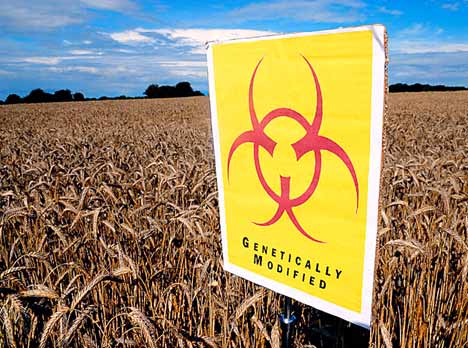 Earlier this year, the Quechua People in the Peruvian state of Cusco, launched an ambitious plan to send 1,500 varieties of Potato to the Svalbard Global Seed Vault in the Arctic Circle. It was first time Indigenous Peoples ever contributed to the underground vault, which already houses more than 90,000 seed samples from around the world.
Earlier this year, the Quechua People in the Peruvian state of Cusco, launched an ambitious plan to send 1,500 varieties of Potato to the Svalbard Global Seed Vault in the Arctic Circle. It was first time Indigenous Peoples ever contributed to the underground vault, which already houses more than 90,000 seed samples from around the world.
Exactly one month after the donation was announced, on April 15 “Peruvian President Alan García signed a decree allowing the import and planting of genetically modified organisms (GMOs) in the country,” explains Amberly Polidor in a news briefing for the Sacred Land Film Project (SLFP).
The official decree puts at risk the genetic diversity of the Peruvian Andes, including the tuberous crop we know as potato.
The fourth most important crop in the world, Potato was first domesticated in Peru about 10,000 years ago. And while western households may take them for granted, they are now inextricably tied to Quechua identity, much like corn to the Maya or Reindeer to the Saami, as the 13-minute documentary “The Potato Park / Parque de la Papa” shows.
“Cusco is the center of origin of the potato, with the highest diversity of potato varieties found anywhere in the world. As guardians of the potatoes, Andean communities have, within challenging political contexts that favor international commercial interests, fought to protect their biocultural heritage. These actions have been supported by local governments, such as the Cusco regional government, and have led to five regions producing decrees that prohibit the use of GMOs … All that has been accomplished over the last 10 years of actions against GMOs in order to protect Peru’s high-quality natural, non-GMO crops is now being threatened,” Alejandro Argumedo of ANDES said in an email message to SLFP.
Last week, opponents of the decree converged in Lima to protest. “Many opponents argue that the country hasn’t conducted enough research and development in the field, and they are asking for a 15-year moratorium on GMOs, to give Peru more time to build the research infrastructure needed to fully assess and make the best decisions on the use of GMO crops,” Polidor explains.
Read the rest of this story at Intercontinental Cry
